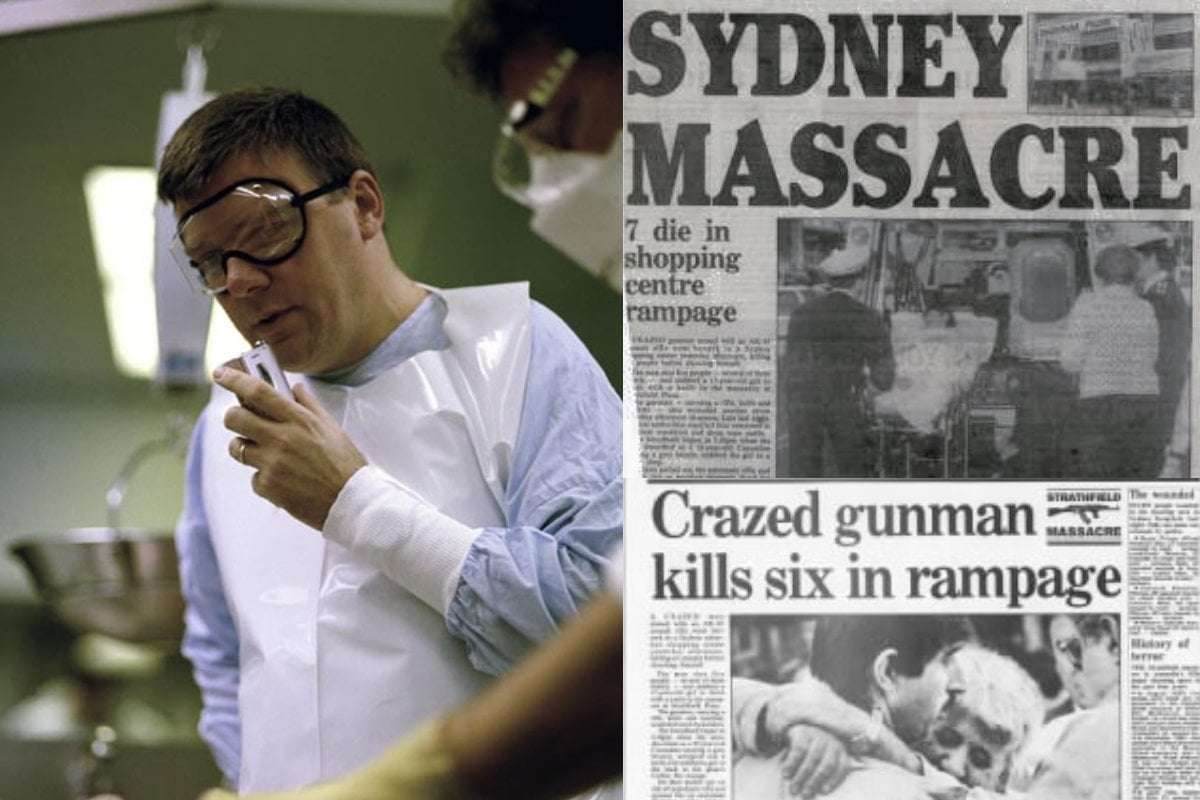
Johan Duflou has seen a lot of dead people. More than 200 every year in fact.
As a forensic pathologist, Duflou's job is to perform autopsies. In other words, he examines dead bodies to determine a cause of death. Sometimes it could be a disease, other times, an accidental injury. In some cases, he's helping solve a murder.
Usually, Duflou isn't negatively impacted by his job, even though most people would probably find it morbid, traumatic even. But Duflou is used to it. He does it every day.
But in 1991, something strange happened. It was an ordinary Saturday, and Duflou had arrived at Strathfield Plaza in Sydney's Inner West with his wife. It's not their local shopping centre, but on this particular day, they needed something specific. When he got to the entrance though, he froze.
Watch: A Day In The Life Of A Forensic Cleaning Team. Post continues below.
"As I approached it, tried to walk in, I couldn't," Duflou tells True Crime Conversations. "I just had this overwhelming anxiety. I just could not walk in."

Top Comments